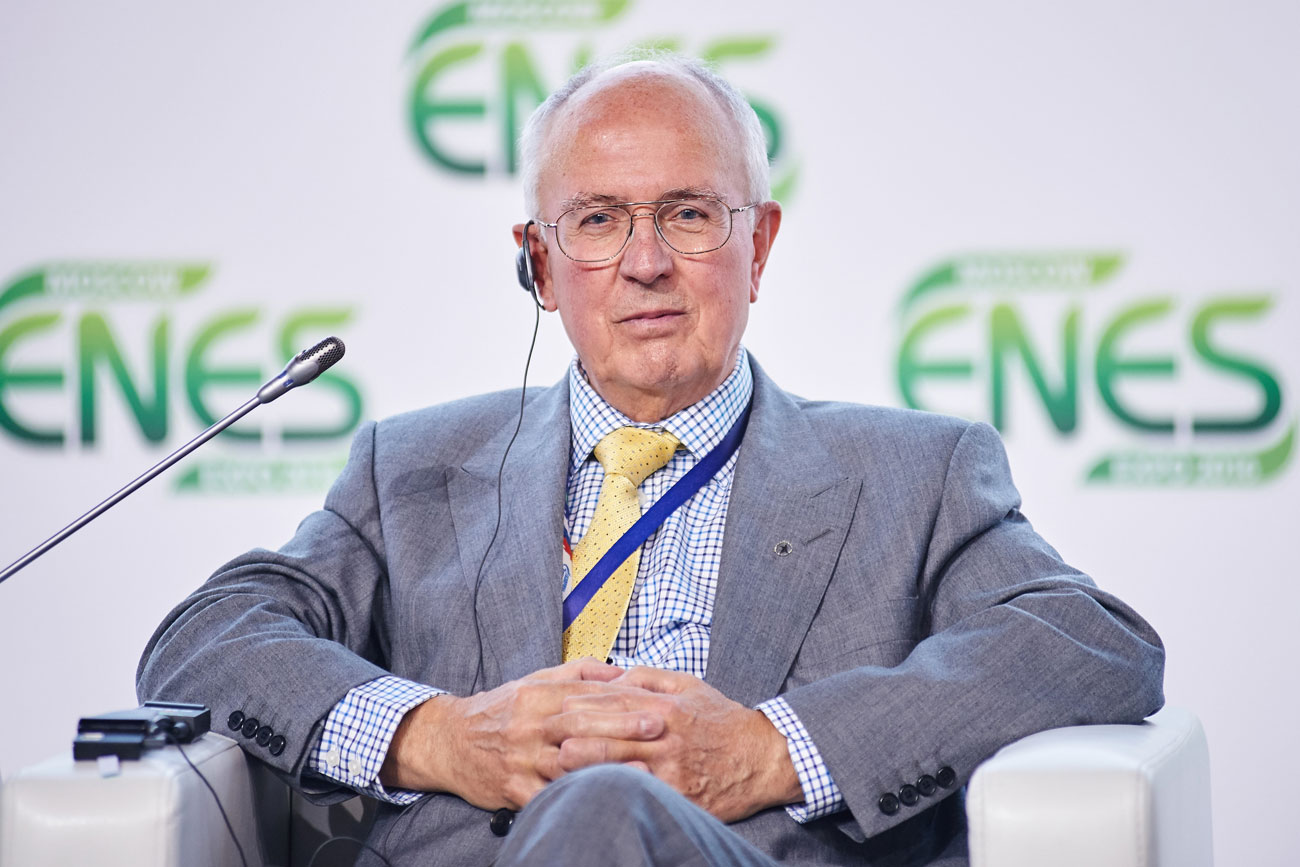
Going green: Experts believe it is impossible to meet increased demand for energy with renewable sources alone.
Shutterstock / Legion MediaBy 2050, global demand for energy will have grown by 50 percent, according to scientists. Guaranteeing supply for this demand is a challenge for international energy companies, since the growth in demand will occur in developing countries, where electricity, one of civilization’s greatest achievements, is still inaccessible for more than a billion people.
In general, problems related to the lack of access to energy sources or to the shortage of energy resources concern more than half of the Earth’s population. The difficulties of supplying energy are being exacerbated by the increase in the world’s population and irregularity in the distribution of resources, as well as by a growing ecological burden on the planet’s ecosystem.
The ENES 2016 International Forum on Energy Efficiency and Energy Development, which was held in Moscow at the end of November, was dedicated to finding solutions to the challenges facing the international energy industry. Its main event was the fifth Global Energy Prize Summit. It discussed the sector’s traditional problems and the way they are related to the planet’s demographic and climatic processes.
The highlight of the event was the speech given by the winner of the 2012 Global Energy Prize, chairman of the Global Energy Prize International Award Committee and member of the Intergovernmental Panel on Climate Change, which won the Nobel Peace Prize in 2007, renowned UK scientist, Rodney John Allam.
 2012 Global Energy Prize winner Rodney John Allam at The Global Energy Prize Summit 2016 in Moscow. Source: Press photo
2012 Global Energy Prize winner Rodney John Allam at The Global Energy Prize Summit 2016 in Moscow. Source: Press photo
In the opinion of the specialists gathered at the summit, energy forecasts for 2050 show there will be growth of about 50 percent in world energy demand and 100 percent growth of demand for electricity.
This is related to the fact that a country’s living standards and economic potential closely correspond to its per capita energy use. According to this indicator, there is an enormous gap between developing and industrially developed countries. In 2015 there were more than a billion people in poor countries who lived without electricity and another 2.6 billion who did not have access to clean fuel sources for preparing food.
Developing countries are trying to reduce these poverty indicators by strengthening their economies. This is the first reason for the growth in demand for energy resources.
The other reason stems from the fact that the planet’s population is continuing to grow rapidly (from 6 to 7.5 billion in the past 16 years alone), which results in increased energy consumption. Currently, the centre of increasing energy demand is shifting from North American and European countries to developing countries, such as China and India.
Experts are convinced that it is impossible to cover the growth of energy demand with renewable energy sources alone. In Rodney Allam’s view, despite the stereotypes regarding renewable energy, in the medium term there should not be any drastic changes in the world’s energy fuel balance. Until 2050 at least, fossil fuel will remain the main primary energy source – mostly oil, but also coal and natural gas, which are gaining momentum in absolute figures.
Whether the demand for energy resources will reach its predicted growth depends on four criteria, according to another Global Energy Prize winner, Klaus Riedle. They are: fuel resources, the technology with which they will be used, global financial resources and finally, ecological restrictions.
In general, it can be said, as the scientists at Moscow’s Global Energy Prize Summit discussed, that proven fuel reserves will cover global demand for energy at least until the end of the 21st century. New technologies for using these resources and for producing energy are adequately meeting modern needs.
However, it is obvious that the distribution of fuel resources and capital is unequal. That is why investment agreements and guarantees for their return must be stipulated in all the countries that are participating in the construction of new energy. This would attract the necessary financial resources and technologies.
The discussion of the first three criteria for developing energy – resources, technologies and finances – did not induce any reservations among the participants of the Global Energy Prize Summit. But the fourth factor – climate – became an object of passionate debate, which is usual for such an event.
As the summit’s participants said, earlier ecological legislation protected the ground, the water and the air from polluting emissions – for example, the generation of energy at thermal power plants, which burn fossil fuels. But recently, “green” pressure on hydrocarbon energy has increased. This is happening primarily because of mounting fears of global climate change, which is related to – as many people are convinced – the increase of the share of man-made carbon dioxide in the atmosphere.
While the presence of warming processes on the planet does not bring about any disagreement, not all specialists agree that they are man-made, believing that other factors play a bigger role in these processes.
Vladimir putin, addressing the participants at the (first) Global Energy Prize Summit:"The Global Energy Prize has become one of the most prestigious international awards, uniting the creative community of talented scientists, researchers and specialists in the field of energy from Russia and many other countries around common objectives and challenges. I am convinced that in the future the prize will continue bringing together the leading forces of world science for the purpose of supplying energy to all of humanity. The efforts of energy scientists, their fundamental works and practical developments are in high demand. They will discover new, potential deposits, create technologies for the deep processing of raw materials and find modern approaches to supplying energy and introducing alternative energy sources.”Some specialists, such as Rodney Allam, insist that great economic growth always entails polluting the atmosphere with its inevitable result: global warming. In his opinion, the peoples of the world have finally admitted that global efforts will be needed to stop the warming processes.
The British scientist says that if we do nothing to change the way we use energy resources today, the Earth’s temperature by 2100, according to estimates provided by the UN’s Intergovernmental Panel on Climate Change, will increase by four to six degrees. That is why by 2050 it is necessary to significantly reduce CO2 to the level of 450 parts per million, which, according to estimates, will help limit maximum global warming by two degrees.
For what it is worth, the necessity of reducing CO2 emissions imposes more and more restrictions on using fossil fuels, thus obliging everyone to invest in renewable energy sources. However, in modern conditions the demand for such growth implies an enormous financial burden for those developing countries if they wish to increase their energy potential to create more dignified living standards for all of their citizens.
Rich countries can afford this, but not without tension. For example, consumers in Germany, 30 percent of whose energy comes from renewable energy sources, spend €24 ($25) billion annually on maintaining those sources. Germany set an objective of deriving 80 percent of its energy from renewable sources by 2050. This program is estimated to cost more than €1 trillion. Similar costly plans exist in the United Kingdom.
Such expenses are, however, an unaffordable luxury for developing countries. Moreover, despite existing global agreements limiting CO2 emissions, such as the Paris Agreement on Climate Change, obligations concerning how to share the additional financial burden have still not been set out.
Many specialists participating in Moscow’s Global Energy Prize Summit were sceptical about the potential for accelerated growth of renewable energy sources. In their view, the growth cannot keep pace with the increase in the global population. Their forecast for existing renewable energy technologies will be no greater than 30 percent in the energy balance of primary consumption by 2050 (currently it is almost 20 percent).
At the same time, oil, gas and coal currently make up about 70pc of the world energy balance. Furthermore, prices of these resources have significantly fallen in recent years and it is unlikely that humanity will turn its back on them by the end of the century. But with the predicted growth of fossil fuel consumption and the use of traditional combustion technologies, by 2100 global temperatures could grow by up to 6C. What will mankind do?
The discussion of climate problems therefore returns us to the problem of technologies. Since we admit that the problem of the shortage of resources in the next decades cannot be solved with renewable energy sources, while we are to continue using fossil fuels for a long time, and the threat of global warming is recognised throughout the world as a problem that needs to be solved, then we must understand which methods of energy production we should use.According to the general opinion of the Global Energy Prize Summit participants, in the future there will be a balanced use of various energy sources: including renewable, nuclear and, obviously, fossil. With respect to the latter, after burning hydrocarbon fuel, residues must be recovered and kept in deep, stable geological formations, in oil and gas wells and in saline aquifers.
But such CO2 use should not be the ultimate goal. It is necessary to create cost-efficient technologies. This is not only common sense. The current economic situation requires it; people from various countries who are dissatisfied with economic conditions are increasing pressure on their governments, which often believe that the necessity to realize essential “green” ideas is an absolute demand and fail to take expenses into account.
Consequently, the participants at the Moscow summit conclude that the direct criterion for reducing greenhouse gas emissions must be the cost of the new energy technologies.
All rights reserved by Rossiyskaya Gazeta.
Subscribe
to our newsletter!
Get the week's best stories straight to your inbox